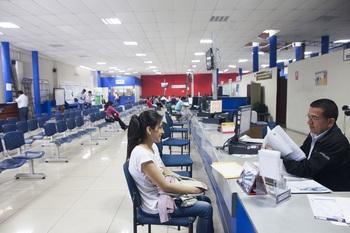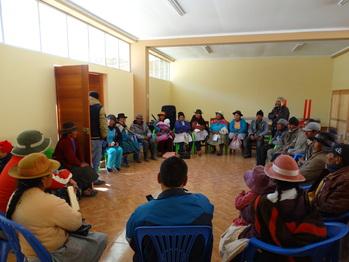Context
Modernisation of state structures and of the public administration is a top priority of the Peruvian Government. A democratisation process has been underway since 2002 that includes comprehensive reforms to decentralise and modernise the state and public administration.
Despite the considerable progress that has been made, approval rates for state institutions in Peru are among the lowest in South America. Reform policy is not coherent enough, nor is it being implemented across the board at the level of local and regional government. Public services cannot be provided effectively as a result. Key obstacles include insufficient interaction between the different levels of government and frequent shortfalls of managerial and financial skills among local and regional governments.
Objective
Public administrations at the local and regional levels act more effectively and transparently and are more oriented towards citizen needs.


